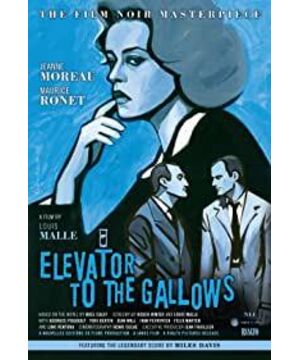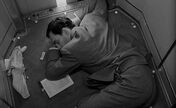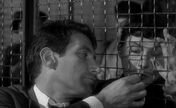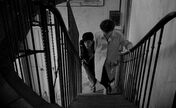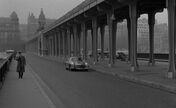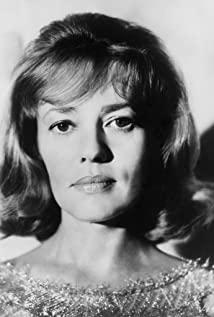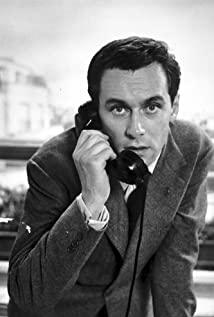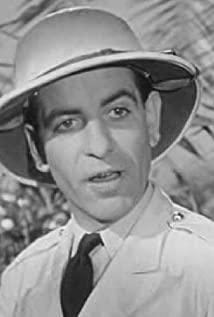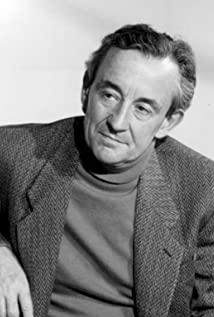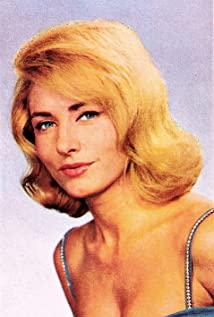Author: Fang Hanjun
Louis Mahler, as the assistant director of Robert Bresson's film "Death Convict Escape", only a few weeks later, he found that his idol was too independent, and based on his previous co-direction of "A Quiet World" with Cousteau (obtained The experience of the Palme d’Or 1956 at the Cannes Film Festival, coupled with the wealth of his family, made him decide to shoot independently. After comparison, he chose Noel Calff's crime novel "Elevator to the Gallows" and invited his friend writer Roger Jimmy to revise the sub-shot script. The ambitious Mahler began a true film journey. Fortunately, this time he succeeded.
"The Elevator to the Gallows" (hereinafter referred to as) thus sounded the forerunner of the French "New Wave", and deservedly became the leader of the film innovation that followed the "New Wave". The film won one of the five French films in the newly established High Quality Film Awards in 1957, and the box office was also good. This "rich second generation" can be described as an extraordinary shot. Undoubtedly, Mahler draws on the best of others, absorbed the film techniques of famous directors such as Hitchcock, Jean Renoir, Bresson, and Jean Cocteau, combined with his solid literary skills and bold creativity, which made the film start so impressive. The eyes are bright, that kind of alienation, wandering and flickering expressiveness, deeply imprinted with his direct film mark, and also made him one of the most stylized directors of the "Left Bank".
When German director Schrondorf was studying in France, he worked under Melville and Mahler successively. After comparing the shooting styles of these two directors, the most direct impression is that Mahler is not bad for money and his family is France. The king of the sugar industry, you can believe that Ma Youyan creates completely according to his own will, while Melville is shy in his pocket, and can only save costs when he is stretched, and find ways to complete his own shooting concept. This also constitutes the difference between these two people. Image style, the beauty and luxury cars in Mahler movies are inevitable, but showing off wealth is only the appearance, he is more concerned about the integration and innovation of film creation, Melville completely turned to black thriller after "Silent Sea" Wind has established a commercial film with a strong literary atmosphere. Different paths and different self-achievements are worthy of appreciation and consideration by later generations.
"Tong" revolves around the former French army intelligence officer Julian Dobenier (interior of Maurice Rowe). He served in the Vietnam War and the Algerian War and had experience in paratrooper operations. This captain status is also related to The calm response he experienced in the film coincides with that. The problem is that the bizarre coincidence made his plan not go well, and it can even be said to be a premature death. Half of the success can only be said to be a lame duck. This unpredictable chain reaction of dominoes finally brought him with his lover. Stepped onto a darker abyss. At the beginning of the film, he talked with his lover eagerly. He was eager to do it right away, and he agreed to meet afterwards. That’s how he couldn’t wait.
It turns out that Julian fell in love with Mrs. Floran Carrara (played by Jeanne Moreau), the wife of his current boss, Mr. Carrara. The close-up shot at the beginning of the film is her silky and moist face. As the camera pulls away, we are presented with a lively cold beauty with a fascinating charm. For men, this is really true. It's hard to stop, and it's hard to access. The natural beauty in the phone booth formed a blank contrast with the entire space. On the other end was Julian's slightly nervous face. He sat at the desk, put down the phone, slightly thoughtful, and got up and implemented it. He, above this can be described as ten thousand people, under one person, this person is the boss of Carrara Company.
It was Saturday. Carrara’s employees were all off work, and only the female operator was waiting. Julian must act quickly. He planned well and used anti-investigation methods. In order to avoid leaving fingerprints, he put on his gloves, opened the window, and then used the anchor hook to sling up. In order to avoid people's eyes and ears, leaving no traces. The boss of Carrara trusted him very much. He thought that Julie was just presenting the Jie Lufa North Africa oil pipeline laying plan, but he did not expect that he pointed a pistol at him. The old man thought it was a joke, of course it was true. He said where did you get my gun. His answer was to pull the trigger, and the old man fell down.
Julian calmly turned the scene into the appearance of his suicide, and returned it the same way, and he was done. He followed the building's security guard and the female operator who was anxious to get off work. Then, he got in his Chevrolet convertible, which attracted the envy of Veronica (played by Uli Bertin), a flower seller. But at this moment, Julian looked up and was shocked in a cold sweat. The rope upstairs was still floating there. It was so dense that he had to rush back. He didn't even have time to pack the things in the car. But when he entered the elevator, the damn fat security guard turned off the elevator switch. Good luck always accompanies bad luck.
Julian can only cat in the elevator and cannot get in or out. But this guy has a lot of experience, he still tried his best to find a way. At this time, Louis (George Puyolly), the rogue boyfriend loved by the flower seller, saw the Julian Chevrolet convertible and took her into the car and drove away. Although his girlfriend stopped it, this kid couldn't hear it. He just wanted to have fun, driving repeatedly on the highway to the outskirts of Paris. Biao car is very cool at night, especially when you meet an opponent driving a Mercedes-Benz. After competing for a while, stopped. A middle-aged fat man came down from the Mercedes-Benz. This Horst was a German industrialist who was addicted to alcohol, a casual man who liked hip-hop, and at the same time a Nazi who had invaded France. This time I returned to France to take my young wife and have a good time around the homeland.
They live in this hotel on the outskirts. The kind Horst invited Louis to drink, and his wife chatted with the flower girl. Louis is inferior and sensitive, while the German is somewhat funny and nagging. But in the middle of the night, Louis boy felt uneasy, and took his girlfriend to drive in the German car. Unexpectedly, Horst, who was drunk, pointed a gun at him. Louis took the gun left by Julian and took the lead. Killed the couple, then drove back to Paris, threw the Mercedes-Benz and Julian's coat on the De Beers Hackham Bridge. This bridge is the dividing line between Paris’ fashionable 16th and 15th arrondissements, and another symbol of New Wave movies. But Julian's miniature camera is still in the hotel.
The cloak, pistol, miniature camera, and planning documents of the oil pipeline that Julian dropped on the car in a hurry are enough to prove that he can't get out of the relationship, let alone the car is still parked in the small hotel. The boy Louis even said, how does this guy have these things, is it a spy, and his girlfriend said it might be an intelligence officer. It's funny. The film gave the middle class and the proletariat a contest in the air. Although it was not positive, it defeated the middle class to the proletariat. This is based on Mahler’s understanding of the rich since childhood, showing his outlook on life. Julian could shoot his boss, a top figure in the pyramid, but he really did not expect that because of a stupid security guard, he gave him an unexpected "joy" and locked him in the elevator like a beast. This is certainly a wonderful irony. This is exactly what the movie brings to us.
Another main presentation of the film is that Mrs. Carrara did not see Julian at the agreed place, but saw Julian’s car and the hee girl, but she didn’t see who was driving, of course. She would not have thought that the car was stolen, nor would she have thought that her lover was trapped in the elevator. She was only angry at the moment. Just thinking that Julian had betrayed her and followed the young flower girl at ease. But she was not sure, or still hopeful, so she came to the Carrara Building to inspect. Interestingly, at this time a little girl came over and asked her why, she had to leave.
In fact, at this moment, Julian found that the cover could be opened under the elevator cushion, and he was about to go down the wire rope. Unexpectedly, the patrolman came to check the elevator lights, and then turned them off after a while. He had to go back to the elevator again, still unable to escape. But Carrara could only walk back and forth in the street since then, feeling very disappointed.
What the film focuses on is precisely this period of her looking for the anxious and helpless emotional state under Julian's trail, accompanied by melancholy jazz, she has been swaying, from cafes, bakery to small shops, she is looking forward to him Appeared, but the disappointment was obvious. She even made a monologue, willing to let go of her arrogant self-esteem, even if he really had a leg with the girl, as long as he appeared, she could forgive her. She walked by money, lonely, lonely and free, until the heavy rain poured down, she was still in the rain, as if she was sure that he would appear.
But he never showed up. Instead, in the bar, she heard a drunk guy who claimed to know Julian, talking about Julian's past, even if it was nonsense, she listened patiently. However, they were taken to the police station by the police. The officer asked her why she was still swaying at 5 in the morning. When she revealed her identity, the other's face quickly improved. Soon, she was picked up home by the car.
After returning to the house, Louie was unsure, after all, he had caused such a disaster. He and the flower girl both felt desperate, so they agreed to commit suicide by taking sleeping pills. After investigating the murder of the German couple, the police found Julian’s car and gun and determined that he was responsible. The reporter got the news from the police and rushed to get the news in the headlines of Sunday morning papers.
At this moment, Julian was curled up in the elevator. Hearing the noise, the elevator turned. He cleaned up and came to the bakery casually. During the meal, everyone from the owner of the bakery to the diners stared at him. A little girl stabbed her father who was reading the newspaper and said that he was him. The father was scared to take her away. Julian took the newspaper and found out that he was a wanted man. He was shot while lying down. Natural and man-made disasters came together.
Upon receiving the report, the police rushed to take him away. Next, the police kept interrogating. He had to say that I was always in the elevator, and the police didn't believe it at all. What are you doing in the elevator? Yes, Julian can't say that after killing the boss, he was afraid of revealing his flaws, so he returned again and was trapped in the elevator. At the same time, the police finally discovered that Carrara's boss had committed suicide. After being notified, Mrs. Carrara pretended not to know the incident and was extremely calm. She took over the butler's newspaper, only to realize that she had misunderstood Julian greatly. She immediately found the flower girl and opened the door. They were not dead after all. She laughed that they had taken too little medicine for suicide and made them testify for Julian.
But Louis this kid will not plead guilty, and even the newspapers say it is Julian, then it has nothing to do with us. So he remembered the film that had fallen in the miniature camera in the hotel. He was riding a motorcycle to get it, and he happened to be seen by Mrs. Carrara who reported to the police at the phone booth opposite. She drove to catch up, the kid was not lucky, and the police were waiting for his arrival. The washed photos proved that Louis killed the German couple, which made Mrs. Carrara relieved. But don't be too happy too early, and at the same time, the close photo of her and Julian has been taken out. Like a blow to the head, she fell into an unfathomable ice hole.
The police officer said that this was enough to prove that Carrara was killed by Julian. You are the accomplice, and you will also go to jail, but the sentence will not be too long. Carrara opened her eyes wide and froze. She was talking about ten years, twenty years, meaningless years will continue, I am cold, but only love you, no one will let us separate.
The last close-up shot is her face, which is in the same line as the face at the beginning of the film. That complex and very firm face, as the so-called beginning means the end. Mahler is a director with a global vision. Although he was so young at that time, the use of jazz in the film fits the long state of anxiety of the characters in the film and adds a lot to the film.
The most commendable is this Mrs. Carrara played by Jeanne Moreau. She is mysterious and cold, and she is evil and charming. It can be said that this is a full-scale show of light and shadow of Jeanna Moreau's amazing acting skills. The film is like tailor-made for her. The shots are changed from different angles, and they always show her all-round, from the perspective, the middle shot, the close shot to the close-up, from all sides and dimensions, highlighting her role Rich expressiveness. It can be said that this movie made Louis Mahler and Jeanne Moreau both popular.
Indeed, there are few actors who have such penetrating power for characters as Jeanna Moreau, and their unique interpretation style can be described as no one. She always reminds me of Hollywood superstar Barbara Stanwick, who walks between good and evil, not simple and dry, but also not gloomy. Even if she plays a bad woman, she feels cute, memorable and unpredictable. . Before acting in movies, she studied classical drama and has acted in many stage plays. When the film was made, the 27-year-old and the 25-year-old Mahlershang were in love. After the film "Tong", Antonioni was full of praise when she saw her walking with her hips shaking in the film. In fact, Bunuel also said similarly, this is a walking posture that makes men tremble and feel a little joy. .
Since then, famous European guides such as Bunuel and Antonioni have invited her, and the movie has made her shine and become the most dazzling star in Europe. After that, she played the heroine in Truffau’s masterpiece "Jules and Jim" (1961). She once said: "In my life, except Truffaut, there is no one more interested in me. ."
Fortunately, Jeanne Moreau had already goodbye to Mahler by then. What's interesting is that Mahler and Truffau were both born in 1932. According to the Chinese zodiac, they are both clever and playful monkeys. Now, 90 years old, she lives quietly in an apartment in Paris. Time is really wonderful, she would not have thought that we are still immersed in her light and shadow, after sixty years of separation, she is still amazing, mysterious, and sighing.
2017, 6, 8
View more about Elevator to the Gallows reviews


